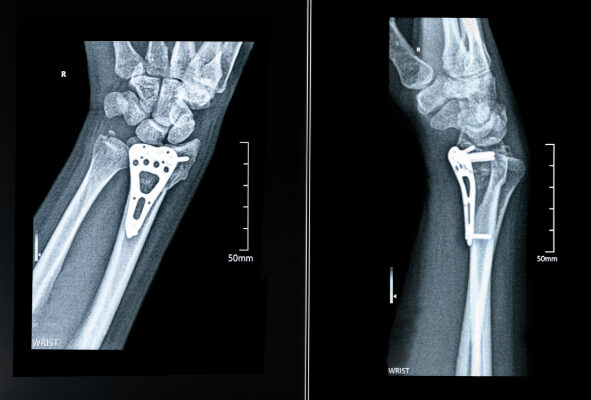It not uncommon for an insurer to deny coverage after a car accident because the driver was not listed on the policy’s declarations page. The typical fact pattern looks like this: Driver borrows a friend’s car with express permission. Driver causes a car accident. When the injured party files a claim, the insurer refuses to defend Driver or pay damages because the policy protects only the “named insured.” The denial may seem reasonable because the policy defines an “insured person” narrowly as “you,” and “you” means only the individual named on the declarations page. However, this is not the end of the analysis in Colorado.
Colorado’s Statutory Definition Controls
Automobile liability policies are contracts, but they do not exist in a vacuum. Colorado statutes dictate minimum standards every policy must meet. These statutes override any policy term that attempts to provide less protection than the legislature requires. The statutory definition of “insured” is “the named insured, relatives of the named insured who reside in the same household as the named insured, and any person using the described motor vehicle with the permission of the named insured.” This statutory language is intentionally broad. This language guarantees a permissive user is treated as an insured.
The Colorado Supreme Court has made clear an insurance policy cannot contract around the Statutory protection. In Wiglesworth v. Farmers Insurance Exchange, the Court held “clauses in an insurance contract which attempt to dilute, condition, or limit statutorily mandated coverage are invalid or void.” Stated otherwise, the statutory definition of “insured” governs in situations where an insurer attempts to limit who qualifies as an insured.
Practical Examples
To better understand how Colorado’s permissive-user rule operates in real-world scenarios, it is helpful to look at common situations where disputes over coverage arise. These examples illustrate how the Statutory definition of an “insured” can override restrictive language in an insurance policy. They also highlight how policyholders and injured parties may still be entitled to coverage, even when the insurer initially denies the claim.
Borrowed Car Scenario
Emma lends her vehicle to her coworker, Dan, so he can get lunch. Dan causes a car accident. Emma’s insurer refuses coverage because Dan is not listed on the policy. Under Colorado law, Dan is an insured because he was using the vehicle with Emma’s permission. The denial is invalid.
Household Relative Scenario
Maria, a college student living at home, drives her parents’ SUV and collides with a cyclist. Even if the policy does not mention Maria, she is covered as a resident relative.
Rented or Loaner Vehicle Scenario
A dealership provides a loaner car while a customer’s vehicle is being serviced. The customer entrusts the loaner to a friend who then causes a car accident. The friend will be considered an insured so long as the customer had the authority to grant permission.
Responding to an Improper Denial of Insurance Coverage
When faced with an improper denial of insurance coverage, the first step is to obtain the complete insurance policy, including all declarations, endorsements, and amendments. Insurers are required to provide a full and accurate copy of the policy upon request. It is essential to review this in its entirety—not just the excerpted language cited in the denial letter. Often, insurers rely on selectively quoted policy terms, but a broader reading in the context of Colorado law can reveal inconsistencies or invalid provisions.
Once the policy has been reviewed, it is important to compare its definitions and exclusions to the statutory requirements. Specifically, as discussed above, Colorado law contains a mandatory definition of an “insured” that includes permissive users of a vehicle. If the policy’s definition is narrower, the policy is unlawfully restrictive. In such cases, the statutory definition overrides the contract language, and the insurer is obligated to extend coverage.
If the insurer continues to deny coverage, the matter should be escalated. Policyholders or third-party claimants may submit a formal complaint to the Colorado Division of Insurance, which has regulatory oversight over insurance carriers operating in the state. The Division can investigate bad faith conduct and impose penalties when insurers fail to comply with statutory obligations.
Finally, legal counsel may be necessary to protect the claimant’s rights and preserve their ability to recover compensation. In some cases, a lawsuit for declaratory relief, breach of contract, or bad faith may compel the insurer to comply with the law. Although litigation can be time-consuming and complex, it may be the only viable path when an insurer unlawfully refuses to honor its duties.
Other Lines of Coverage
This statutory override is not limited to liability coverage. It also applies to uninsured/underinsured motorist (UM/UIM) coverage, medical payments coverage (“MPC” or “Med Pay”), and property damage provisions. For instance, in UM/UIM claims, insurers sometimes attempt to restrict who qualifies as an “insured” or apply exclusions that contradict Colorado law. In such cases, the statutory framework will govern. If a provision in the policy conflicts with Colorado’s insurance statutes, that provision is void and unenforceable. Courts have consistently held insurance companies cannot contract around mandatory statutory protections, regardless of the line of coverage at issue.
Takeaways
Colorado law provides clear protections to ensure that individuals injured in car accidents are not unfairly denied coverage based on restrictive policy language. A driver is considered an insured when driving a vehicle with the owner’s express permission. Insurers that rely on narrow definitions are not acting in accordance with Colorado’s legal standards. If an insurance company issues a denial that contradicts the statutory definition of an insured, the denial is improper. Injured individuals or vehicle owners should always request a full copy of the insurance policy, review the language carefully, and compare it to the requirements set forth in Colorado law. If there is a conflict, the statute will control.
Improper coverage denials are not unique to any one insurer. Insurance companies may attempt to rely on exclusions or definitions that simply do not align with Colorado law. In these cases, legal intervention may be necessary. Enforcing the protections provided by Colorado statutes may be the only way to ensure full and fair compensation.
If you believe an insurance company is unreasonably denying a claim, contact a car accident attorney. The car accident lawyers at Bowman Law will gladly fight for your rights after a car accident. Contact Bowman Law for your free consultation. Our law firm is located in Denver and serves the Front Range including Colorado Springs, Boulder, Fort Collins, Westminster, Lakewood, and Aurora.



 Return to All News & Resources
Return to All News & Resources


